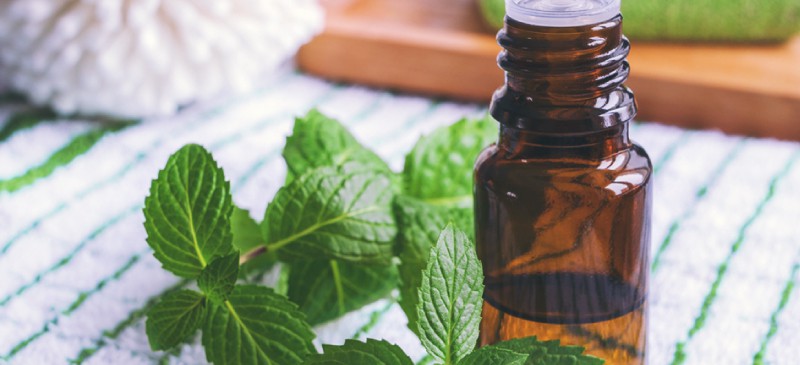Bloating can often cause pain, discomfort and a “stuffed” feeling, while making your stomach look bigger.It involves excessive amounts of solids, liquids or gas in your digestive system. Sometimes bloating can indicate a serious medical condition, but is more frequently caused by the diet and some foods or ingredients you are intolerant to.
- Don’t Eat Too Much at a Time
Being overly full after a meal can feel like being bloated, but the problem is that you simply ate too much. If you’re eating big meals and tend to feel uncomfortable afterward, then try smaller portions. Add another daily meal if necessary.
Chewing your food better reduces the amount of air you swallow with the food. It also makes you eat slower, which is linked to reduced food intake and smaller portions.
- Avoid Swallowing Air and Gases
There are two sources of gas in the digestive system. One is gas produced by the bacteria in the gut. The other is air or gas that is swallowed when you eat or drink. The biggest offender here is carbonated beverages like soda or fizzy drinks. Chewing gum, drinking through a straw and eating while talking or while in a hurry can also lead to increased amounts of swallowed air.

- Rule Out Food Allergies and Intolerances to Common Foods
Food sensitivities and intolerances are fairly common. Consumption of food you are intolerant to can cause excess gas production, bloating and other symptoms.
Some common foods and ingredients to consider:
Lactose: Lactose intolerance is associated with many digestive symptoms, including bloating. Lactose is the main carbohydrate in milk.
Fructose: Fructose intolerance can lead to bloating.
Eggs: Gas and bloating are common symptoms of egg allergy.
Wheat and gluten: Many people are intolerant to gluten, a protein in wheat, spelt, barley and some other grains. This can lead to various adverse effects on digestion, including bloating.
Both lactose and fructose are a part of a larger group of indigestible carbs or fiber known as FODMAPs. FODMAP intolerance is one of the most common causes of bloating and abdominal pain.
*If you strongly suspect that you have a food allergy or intolerance, see a doctor.
- Avoid Swallowing Air and Gases
There are two sources of gas in the digestive system. One is gas produced by the bacteria in the gut. The other is air or gas that is swallowed when you eat or drink. The biggest offender here is carbonated beverages like soda or fizzy drinks.
Chewing gum, drinking through a straw and eating while talking or while in a hurry can also lead to increased amounts of swallowed air.
- Try a Low-FODMAP Diet
FODMAP stands for fermentable oligo-, di-, mono-saccharides and polyols. These are the scientific terms used to classify groups of carbs that are known to trigger digestive symptoms like bloating, gas and stomach pain.

Studies have shown that indigestible carbohydrates called FODMAPs can drastically exacerbate symptoms in people with Irritable bowel syndrome (IBS).
A low-FODMAP diet has been shown to lead to major reductions in symptoms such as bloating in IBS patients. If you have problems with bloating, with or without other digestive symptoms, a low-FODMAP diet could be a solution.
Here are some common high-FODMAP foods:
Wheat
Onions
Garlic
Broccoli
Cabbage
Cauliflower
Artichokes
Beans
Apples
Pears
Watermelon
This diet can be difficult to follow if you’re used to eating many of these foods, but may be worth a try if you have bloating or other digestive problems.
- Be Careful With Sugar Alcohols
Sugar alcohols are commonly found in sugar-free foods and chewing gums. These sweeteners are generally considered to be safe alternatives to sugar. However, they may cause digestive problems in high amounts. The bacteria in your large intestine digest them and produce gas.
Sugar alcohols are actually FODMAPs as well, so they are excluded on a low-FODMAP diet. Try avoiding sugar alcohols like xylitol, sorbitol and mannitol. The sugar alcohol erythritol may be better tolerated than the others, but it can also cause digestive issues in large doses.
- Peppermint Oil May Help
Bloating may also be caused by a change in function of the muscles in the digestive tract. Drugs called antispasmodics, which can help reduce muscle spasms, are sometimes prescribed for this. Peppermint oil is a natural substance that is believed to function in a similar way.
It has been shown to reduce various symptoms in IBS patients, including bloating. Peppermint oil is available in supplement form.

- Drink More Water
It might sound counterintuitive to drink more water when feeling bloated, drinking water can actually help relieve the condition . Drinking plenty of water helps to naturally flush our systems of excess water and sodium that we might retain. If drinking enough water is a challenge for you, try eating foods with high water content, like watermelon, tomatoes, grapefruit, and cucumber. Coconut water contains potassium, similar to a banana, and electrolytes that maintain regular fluid levels in the body, all helping to alleviate the symptoms of bloating.
If your symptoms of bloating persist for more than a few days then it’s important to contact your healthcare provider to rule out the possibility of a medical condition.

